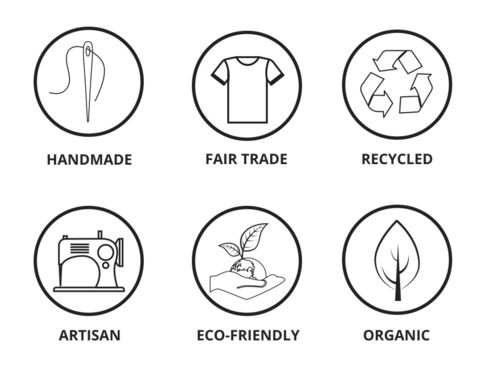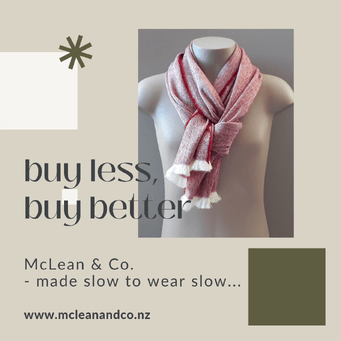People often ask "What is slow fashion?"

Quite simply, slow fashion is the opposite of fast fashion. Slow Fashion is an awareness and approach to fashion. It means you choose to buy less, purchasing better quality, classic pieces which add value to your wardrobe. It means making conscious and thoughtful decisions about
what you choose to buy. It means making a stand for environmental issues by insisting on transparent and sustainable production processes that do not harm our Earth. It means protecting human rights by ensuring fair and ethical conditions and pay for workers.
McLean & Co. are committed to Slow Fashion. Our products are made from quality, sustainable New Zealand wool, using traditional weaving techniques and skills on our antique Hattersley looms. Our yarn is sourced locally, and processed by businesses who recognise their responsibility to the environment and their workers. We value fair treatment of people, animals and the planet. We take time to craft our woven and stitched products with crafted skill, time, integrity and most of all love and respect for the fibre we use and our beautiful old looms.
Slow fashion is about developing a cultural, emotional or social connection with your fashion or home wares purchase - and that is easy to do with a McLean & Co product!
If you are interested in finding out more about slow fashion, I found this great blog where I also found this quote from Kate Fletcher, who is widely credited with coming up with the 'slow fashion' term in 2007.
https://www.sloww.co/slow-fashion-101/
"Slow fashion is about designing, producing, consuming and living better. Slow fashion is not time-based but quality-based (which has some time components). Slow is not the opposite of fast – there is no dualism – but a different approach in which designers, buyers, retailers and consumers are more aware of the impacts of products on workers, communities and ecosystems…Slow fashion is about choice, information, cultural diversity and identity. Yet, critically, it is also about balance. It requires a combination of rapid imaginative change and symbolic (fashion) expression as well as durability and long-term engaging, quality products." — Kate Fletcher
